Septoplasty in Kuala Lumpur
Search and Compare the Best Clinics and Doctors at the Lowest Prices for Septoplasty in Kuala Lumpur
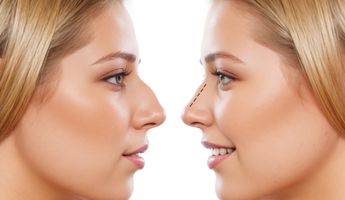
Find the best clinics for Septoplasty in Kuala Lumpur
No pricing info available
Romania offers the best prices Worldwide
Price: $ 404
From 132 verified reviews
Derf B. Sibal, 19 September 2020
Staffs are very kind and responsible, great quality service! I’ve been getting a five star service in five years now! Keep up!
From 137 verified reviews
Tanuja Rajalingam, 02 September 2020
Delivered my 3 kids here! Dr Kk Iswaran is surely the best for me. The nurses are extremely warm, kind and helpful.
From 1 verified reviews
Sohrab Bhuiyan, 08 August 2018
It was the worst experience for me to visit this clinic. I visited for my ear problem. He talks so much; most of the time uses 'may be' or 'may be not'. Through the conversations he tries to expose his vast knowledge in his profession. He entered one equipment through my nose for several times. I don't have any gastric. But for my ear problem he also prescribed for nexium 40mg. Finally he made a bill for RM1,653.00 only without any medicine. Which one was more than 4 times comparing to other clinics where I visited in past for the same problem.
From 16 verified reviews
Senthil Kumar, 03 February 2020
Dr.Aman is definitely as good as Dr.Harnam. He diagnosed and treated my inner ear issue within minutes, when in fact other drs misdiagnosed/mistreated it. His medications are quite effective. The staffs are very friendly and approachable. The parking is convenient.
Compare Before & After Photos of _procedure_photos.phpSeptoplasty
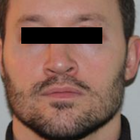
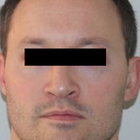
Front view
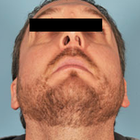
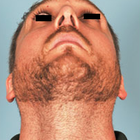
Front view
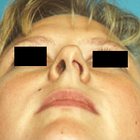
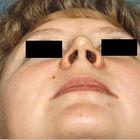
Front view
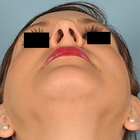
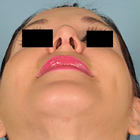
Front view
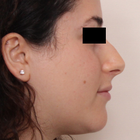
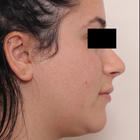
Full-side view
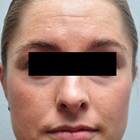
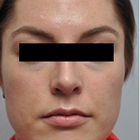
Front view
WHY US?
At Medijump, we're making medical easy. You can search, compare, discuss, and book your medical all in one place. We open the door to the best medical providers worldwide, saving you time and energy along the way, and it's all for FREE, no hidden fees, and no price markups guaranteed. So what are you waiting for?

Free

Best Price

Widest Selection

Risk-Free
What you need to know about Septoplasty in Kuala Lumpur
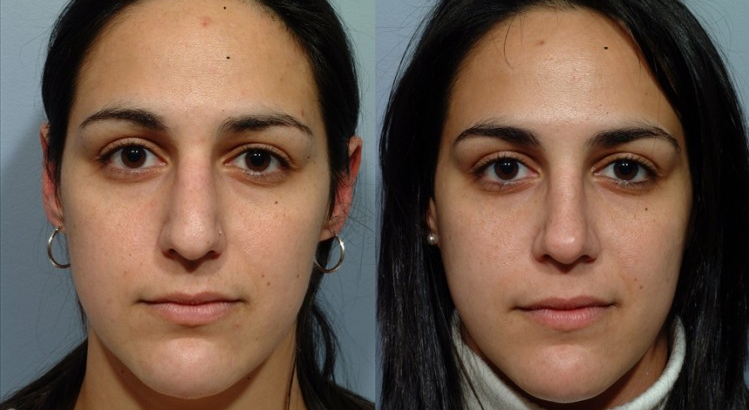
A septum is a bone and cartilage that separates the nasal cavity of the nose. When your nasal septum is off-center, crooked, or moved to one side of your nose, it is a condition known as a deviated septum and can make breathing difficult. To correct this condition, you may need to undergo Septoplasty, where your septum will be straightened to allow better airflow through your nose. This surgery is the only way to fix a deviated septum. However, septoplasty may also be performed to treat long-term sinusitis, remove nasal polyps, or treat other conditions that block the nasal airways. Sometimes, surgeons also recommend this surgery to stop recurrent nosebleeds and facial pains. For conditions other than deviated septum, surgeons often only recommend septoplasty after ruling out other treatments.
What does a Septoplasty Procedure Involve?
A deviated septum is common, but when the condition is severe, it can block one side of your nose and reduce airflow. It can also contribute to crusting or bleeding. If you experience difficulty breathing through your nose that significantly affects your life, you may want to consider septoplasty. Before the surgery, your doctor will review the details of the surgery and ask you to complete some routine tests, such as a blood test, electrical heart tracing, or X-ray. Be sure to tell your doctor if you have any possible allergies. To prepare for the procedure, you may need to stop taking certain medications at least two weeks before the surgery because they can increase your risk of excessive bleeding and the medications include aspirin, ibuprofen, and other blood-thinners.
Septoplasty can be carried out under local anesthesia or general anesthesia. If you have the surgery under local anesthesia, you should not eat or drink anything after midnight the night before the procedure. Not eating and drinking will prevent you from vomiting and choking if the anesthesia nauseates you during surgery. Your surgeon will start the surgery by making an incision on one side of your nose to access the septum. They will then lift the mucosa lining that covers the cartilage and bone. Next, they will reshape the cartilage and bone to move the deviated septum to the correct position. Extra pieces of bone or cartilage that make barriers will be removed. Then, they will reposition the mucous membrane. You may need stitches to hold the septum and membrane in place. Soft silicone splints are sometimes inserted inside the nostrils to support the septum. The whole procedure takes between 30 to 90 minutes to complete.
How Long Should I Stay in Kuala Lumpur for a Septoplasty Procedure?
Septoplasty is an outpatient procedure, which means you will likely go home on the same day of the surgery after the anesthesia has worn off unless major complications arise. However, you should stay in the Kuala Lumpur for 3-4 days for the initial recovery and follow-up checkups. If your surgeon places splints in the nose, they will be removed within seven days. You may return home when your surgeon allows you as long as there is no complication.
What's the Recovery Time for Septoplasty Procedures in Kuala Lumpur?
You may feel drowsy for a few hours following the surgery and you may also feel pain. However, your surgeon will prescribe medication to help with the pain. Some congestion and bleeding can occur after you are discharged from the hospital as your body recovers, but these symptoms should be gone in 2 weeks. The recovery period varies from one person to another. In general, you should be able to return to work within a few days, but you should allow at least three weeks before going back to your full normal routine. You should also limit your physical activities such as exercise for several weeks to minimize swelling and speed up healing because intense physical activities can increase your blood pressure and lead to bleeding.
What sort of Aftercare is Required for Septoplasty Procedures in Kuala Lumpur?
Your doctor will give you post-operative care instructions, which you will need to follow, The wound on your nose will heal fairly quickly, and your breathing will improve shortly after the procedure. For a quicker recovery, you may need to elevate your head at night to keep the swelling down, wear a button-up shirt so you do not need to pull clothing over your head, and do not blow your nose for at least two to three days after surgery. Avoid drinking alcohol, smoking tobacco, returning to work too soon, strenuous activities, and being in a crowd where people are smoking or coughing.
What's the Success Rate of Septoplasty Procedures in Kuala Lumpur?
The success rate for septoplasty is high, with up to 85% of people experiencing a significant improvement in their nasal blockage after surgery.
However, some people will require a second surgery if they are not satisfied with the results. Septoplasty is a very low-risk procedure, but you should be aware of the possible complications and side effects and these risks can include:
- Bleeding in small amounts is common, but in rare cases, excessive bleeding may occur.
- Infection can occur after septoplasty because the nose is not a sterile environment.
- Toxic shock syndrome is a very rare and life-threatening infection.
- Septal perforation is a small hole that can sometimes develop in the nasal septum during or after the surgery.
- Spinal fluid leak and it is extremely rare.
Other risks such as scarring, and altered nose shape, discoloration of the nose, a decreased sense of smell, tooth or nose numbness, and continuing symptoms are also possible. Other than following your surgeon’s aftercare instructions, keeping the nose clean and washing your hands often can reduce the risks.
Are there Alternatives to Septoplasty Procedures in Kuala Lumpur?
Although most conditions of a deviated septum can only be treated by septoplasty, there are nonsurgical treatments for other nasal blockages to help you breathe better. If your nasal blockage is caused by an allergy, you may take antihistamines from your doctor or over-the-counter. In cases of bacterial infection, your doctor can prescribe antibiotics to help clear the nasal airways.
Whilst the information presented here has been accurately sourced and verified by a medical professional for its accuracy, it is still advised to consult with your doctor before pursuing a medical treatment at one of the listed medical providers
No Time?
Tell us what you're looking for and we'll reachout to the top clinics all at once
Enquire Now

Popular Procedures in Kuala Lumpur
Prices Start From $1,945

Prices Start From $101

Prices Start From $192

Prices Start From $500

Recommended Medical Centers in Kuala Lumpur for Septoplasty

- Interpreter services
- Translation service
- Religious facilities
- Medical records transfer
- Medical travel insurance
- Health insurance coordination
- TV in the room
- Safe in the room
- Phone in the room
- Private rooms for patients available

- Interpreter services
- Translation service
- Religious facilities
- Medical records transfer
- Medical travel insurance
- Health insurance coordination
- TV in the room
- Safe in the room
- Phone in the room
- Private rooms for patients available

- Interpreter services
- Translation service
- Religious facilities
- Medical records transfer
- Medical travel insurance
- Health insurance coordination
- TV in the room
- Safe in the room
- Phone in the room
- Private rooms for patients available

- Interpreter services
- Translation service
- Religious facilities
- Medical records transfer
- Medical travel insurance
- Health insurance coordination
- TV in the room
- Safe in the room
- Phone in the room
- Private rooms for patients available

- Interpreter services
- Translation service
- Religious facilities
- Medical records transfer
- Medical travel insurance
- Health insurance coordination
- TV in the room
- Safe in the room
- Phone in the room
- Private rooms for patients available

- Interpreter services
- Translation service
- Religious facilities
- Medical records transfer
- Medical travel insurance
- Health insurance coordination
- TV in the room
- Safe in the room
- Phone in the room
- Private rooms for patients available

- Interpreter services
- Translation service
- Religious facilities
- Medical records transfer
- Medical travel insurance
- Health insurance coordination
- TV in the room
- Safe in the room
- Phone in the room
- Private rooms for patients available

- Interpreter services
- Translation service
- Religious facilities
- Medical records transfer
- Medical travel insurance
- Health insurance coordination
- TV in the room
- Safe in the room
- Phone in the room
- Private rooms for patients available

- Interpreter services
- Translation service
- Religious facilities
- Medical records transfer
- Medical travel insurance
- Health insurance coordination
- TV in the room
- Safe in the room
- Phone in the room
- Private rooms for patients available
Septoplasty in and around Kuala Lumpur
About Kuala Lumpur
Kuala Lumpur is the capital city of Malaysia and often cited as the Food Capital of Asia. The city is modern on one hand and at the same time exhibits a rich cultural legacy.
Recognized globally, Kuala Lumpur is fast becoming a favored choice for medical tourism. Many individuals making the journey to this bustling metropolis can expect to conserve anywhere from 60% to 80% in medical expenses compared to the astronomical fees seen in the United States. The appeal doesn't end at affordable prices, the city's hospitals are reputed for their outstanding post-surgery care, ensuring patients feel comfortable and well-looked after. Supplementing the exemplary healthcare, these hospitals offer luxurious accommodation comparable to a five-star hotel suite, signaling a new standard for medical facilities worldwide.
Here is why Kuala Lumpur scores high in medical tourism.
- Extremely affordable and the quality of all treatments are of a high standard
- The Doctors are all certified and the teams are well trained
- Hospitals are world-class with the best amenities and modern surgical equipment
- Excellent post-operative care facilities to help with recuperating
Medical procedures including breast augmentation, varicose vein surgery, laser eye surgery, dental procedures, fertility treatments, oncology treatments and spinal surgeries are highly demanded in Kuala Lumpur. With state-of-the-art facilities, hospitals notably Pantai Hospital, HSC Medical Center, and Sikarin Hospital lead in providing these sought-after services.
Additionally, distinct local clinics situated in and around Kuala Lumpur, such as Dr. Cheong Plastic Surgery Clinic and KTOP Clinic, are particularly renowned in the field of breast augmentation. These institutions, aptly combining professionalism with empathy, embody the heightened standards of medical care in the city.
Popular areas in Kuala Lumpur
This city boasts a plethora of iconic attractions, spanning both naturally occurring wonders and impressive manmade structures:
- The Petronas: Hailed as the Twin Jewels of Kuala Lumpur, it is an 88-story twin tower. Thousands visit every day to walk over the sky bridge that connects the two towers to see the excellent bird’s eye view of the city. On a clear day, you can see as far as Indonesia.
- The Menara KL towers: This is the fifth tallest structure in the world today. Its observation deck is a hundred feet higher than the sky bridge that rests between the Petronas twin towers; What’s more, is that the ticket to the observation deck is completely free. Make sure that you reach there early because it has time slots to control the visiting number of people.
- China town: Is on Petaling Street and is surrounded by many very old historical shophouses and temples and is home to many local street food sellers. This 24-hour vibrant market township is the best place to shop if you love a bargain.
- The Batu Caves: is a limestone hill comprising three major caves and a number of smaller ones. The 100-year-old temple has idols and statues erected inside the main caves and around it. the temple is considered an important religious landmark by Hindus.
- The Open Aviary: Ever imagined an aviary where birds are not caged? That is the KL Open Aviary for you. Visitors are free to interact, feed, and even take photographs with the uncaged birds. It is one place you must not miss if you are a bird lover. There are more than 150 varieties to see and learn about.
Weather and Climate in Kuala Lumpur
In this city, residents and tourists alike encounter a tropical climate. Its persistent heat and humidity manifest in daily temperatures that typically fall between 29 and 35 degrees centigrade. Nighttime brings a touch of relative coolness, as temperatures drop to roughly 26 to 29 degrees centigrade.
While post-rain chills can occur, the city remains largely resilient to the monsoon winds coming from both the west and east. These sporadic showers pose minimal inconvenience as the city boasts well-structured covered walkways. A variety of indoor recreational complexes, inclusive of massive malls, guarantees an enjoyable pastime that doubles as shelter from the rain.
Getting around in Kuala Lumpur
The standard of public transportation within the city is second to none. A comprehensive network of buses and subway lines ensures swift and comfortable travel throughout the city, with affordable taxis providing an alternative for both longer and shorter journeys.
Showcasing their discipline, taxi drivers adhere meticulously to all road traffic rules and signs. For visiting tourists, the Hop-on-Hop-off service proves a favorite, offering a convenient tour that traverses the city, accompanied by an informative radio guide.
Tourist Visas in Kuala Lumpur
Citizens of 35 countries and the citizens of Commonwealth countries, including British protected citizens, Citizens from Ireland, Netherlands, Switzerland, San Marino, and Liechtenstein do not require a visa to enter Malaysia for up to 90 days.
Citizens of India, Bangladesh, Sri Lanka, Pakistan, and other countries will need to obtain a visa in advance before entering Malaysia. Visas can be obtained online or at a Malaysian embassy or consulate.
Additional Information
- Local Currency: The currency is the colorful Malaysian Ringgit. Further divided are cents or what the locals call as Sen. Coins are easy to handle. Ensure you carry enough local currency for the duration of your visit, as it is convenient to use shopping malls and local businesses. However, make sure to spend all the money you have exchanged before exiting the country because Malaysian Ringgit is not traded internationally.
- Money and payments: All retail outlets, restaurants, and eateries accept Master and Visa cards. You will also find ATMs, placed conveniently at all of the major tourist and shopping locations around the city.
- Local language: The Locals speak Malay and Arabic is also spoken widely. Nearly all of the population will understand and talk basic English.
- Local culture and religion: A large number of the population follow Islam and the second most popular religion in the city is Buddhism, there is also a small percentage of Christians and Hindus in the city. The culture is tolerant, and the people are extremely warm and friendly towards each other.
- Public holidays: The locals celebrate the Gregorian New Year, the Islamic New Year and the Chinese New Year. Apart from these, the other holidays include international May Day or worker’s day and the days connected with the Coronation of the Monarchy.
Popular Searches
- Plastic Surgery in Thailand
- Dental Implants in Thailand
- Hair Transplant in Thailand
- Breast Augmentation Thailand
- Gastric Sleeve in Thailand
- Gender Reassignment Surgery in Thailand
- Laser Hair Removal in Bangkok
- Botox in Bangkok
- Dermatology in Bangkok
- Breast Augmentation in Bangkok
- Coolsculpting in Bangkok
- Veneers in Turkey
- Hair Transplant in Turkey
- Rhinoplasty in Turkey
- Stem Cell Therapy in Mexico
- Rhinoplasty in Mexico
- Liposuction in Mexico
- Coolsculpting in Tijuana
- Rhinoplasty in Korea
- Scar Removal in Korea
- Gastric Sleeve in Turkey
- Bone Marrow Transplant in India
- Invisalign in Malaysia
- Plastic Surgery in the Dominican Republic
- Tummy Tuck in the Dominican Republic
- Plastic and Cosmetic Surgery in Poland
- Rhinoplasty in Poland
- Hair Implant in Poland
- Dental Implants in Poland
- IVF in Turkey


